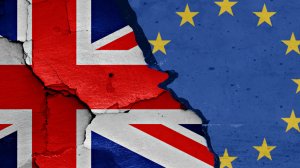
Conflicted probably best summarises my thoughts in the aftermath of the Brexit Vote. Given the trajectory of my political and social development , I should be unspeakably delighted that GB jumped off a cliff into the mire on June 23rd; the very public humiliation of a British Prime Minister at her first G20; the disdain and unconcealed mirth at the cabinet appointments; in-fighting and division in the two principal, political parties; the immediate loss of confidence in Sterling; the slowdown in retail sales and immediate reduction in house prices; the gloomy forecasts for the economy; most pertinently the visible loss of international status. These are only some of the outcomes that I would have dearly yearned for as a young man. And yet, living in Scotland among tolerant, socially conscious people, I cannot really take joy from England’s catastrophe.
In 1961 when I was a student, working the summer holidays in Grimsby, a kindly, English landlady invited me to watch the Fourth Test against Australia at Headingly on TV. It was with great difficulty that I concealed my delight when Richie Benaud demolished the English batting. In common with my peers, I cannot ever remember an occasion when we hoped that an English team or individual would be victorious. Today it is somehow different because people like Andy Murray and Mo Farrah represent GB.
in a long piece about our relationship with England, Fintan O’Toole argued this weekend that even a violent, nationalist revolution ‘left key aspects of the Anglo-Irish relationship intact’. And , undoubtedly, he is right; the Irish are still despised by large sections of the English class system; the Easter Rising has not been forgotten as the first fissure in the glorious British Empire. O’Toole, of course, is representative of a vestigial , West Brit, anachronistic group in the Dublin area which might welcome a return to Home Rule , at worst, or possibly compromise on Commonwealth membership.
My political and cultural opinions were formed in partitioned Ireland where there was institutionalised discrimination in employment, housing , education and, indeed, in nearly every aspect of the human experience where it was possible to legislate. Lardner-Burke, the notorious Rhodesian Justice Minister, responsible for the detention and torture of tens of thousands of Black nationalists, regretted that he had nothing on statute that remotely resembled the unfettered vigour of the Special Powers’ Act in the Six Counties. I have been reading Ringside Seats by Robert Ramsay, formerly a senior civil servant at Stormont. He denies that it was ever any part of Government Policy to discriminate against the minority population, although he accepts that it is difficult to defend the actions of local authorities such as that which controlled Derry.
All that said, my quiet satisfaction at the increasingly rapid decline of British power is offset by concern that it is the poor who will , as always, feel the immediate sharp edge of a collapsing economy. The people of Northern Ireland and Scotland voted overwhelmingly to remain part of the EU. It is a democratic absurdity that ring wing Tories at Westminster will enact legislation to remove us from Europe when Article 50 is finally triggered. In Scotland’s case, independence is now inevitable but what of Ireland?
I am not elated.
Thank you for always writing in a respectful way when trying to inform. I appreciate how difficult it is to struggle with a desire to be delighted that Scotland will claim its independence while NI will struggle to find an identity that makes sense as they will also be suffering from the economic punishment that will certainly continue and expand when the trigger is pulling on Article 50. As a foreigner I am watchful of the indicators of resentment toward identities which do not “fit” neatly within an identity which in and of itself is blurry and difficult to define. The people of NI will have their identity redefined as they are already feeling some pressure to align themselves in unexpected ways as the days move forward. One noticeable effect has been their concern of welcome in Spain.
Thanks, Ona. I am afraid that the implications of the final sentence elude me. Spain is of course opposed to an independent Scotland being fast-tracked through the EU membership application procedure as the ‘wrong’ message would be sent to the Catalans.
there are many Irish citizens , holding Irish passports and the Republic of IreLand must surely have some obligation to those nationals in the current situation.